Dr. Christopher Morris discusses his approach to training the next generation of rheumatologists to account for disparities in access to rheumatic care& the value of multidisciplinary medical organizations.
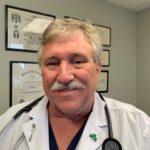

Dr. Christopher Morris discusses his approach to training the next generation of rheumatologists to account for disparities in access to rheumatic care& the value of multidisciplinary medical organizations.
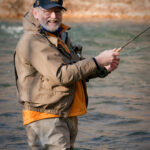
“When you get a good mentor, don’t let ’em be the one that got away.” Richard Brasington Jr., MD, FACP, MACR, told me this about a decade ago when I was a rheumatology fellowship applicant and first met him. It was clear the statement was influenced by his love of fishing. Dr. Brasington’s office was…
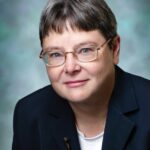
Systemic lupus erythematosus (SLE) affects a substantial number of patients worldwide, with an estimated prevalence in North America of 241 per 100,000 people.1 The morbidity and mortality associated with the condition can be significant, and thus research on this disease continues to be of utmost importance. The story of one of the world’s leading experts…
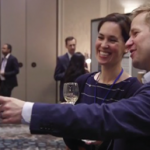
Iris Navarro-Milan, MD, & Jeffrey Sparks, MD, MMSc |
The ACR Rheumatology Research Workshop (RRW) is a two-day meeting designed to promote interactions between early and established investigators to foster collaboration and facilitate career mentoring. The RRW is targeted to rheumatology fellows, junior faculty, medical/graduate students, and residents interested in learning more about how to succeed in a research career for rheumatology. RRW is…
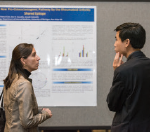
Brian Le, MD, a rheumatology fellow at the Medical College of Georgia at Augusta University (MCG), credits an excellent mentor and two Rheumatology Research Foundation preceptorships with guiding his career toward rheumatology. “Working with Dr. Laura Carbone has opened up a lot of doors for me,” says Dr. Le. “I wouldn’t have such a great relationship with…

Medicine has traditionally been an apprenticeship model. The most elemental and constructive method of passing on knowledge is the mentor–mentee relational experience. Mentorship encompasses not only the role of teacher, but also that of coach, role model, advisor and confidante. Matthew J. Koster, MD, rheumatology fellow and instructor in medicine, Mayo Clinic, Rochester, Minn., can…
Lisa G. Criscione-Schreiber, MD |
Let your time with residents provide training opportunities, not undermine efficiency
The ACR Workforce Study estimated that nearly half of practicing rheumatologists will retire within eight years, which means that by 2025, there will be a severe shortage of rheumatologists and rheumatology health professionals in the United States.
Kate Lorig RN, DrPH, continues to map new territories
Staff |
The size of the rheumatology patient population is projected to increase dramatically over the next decade, and there is an urgent need to recruit and train the next generation of rheumatologists. The ACR Research and Education Foundation (REF) is committed to funding the necessary training and education programs to help combat the negative workforce trend, but it is up to you—today’s academic rheumatologist—to attract and train new clinicians and researchers.